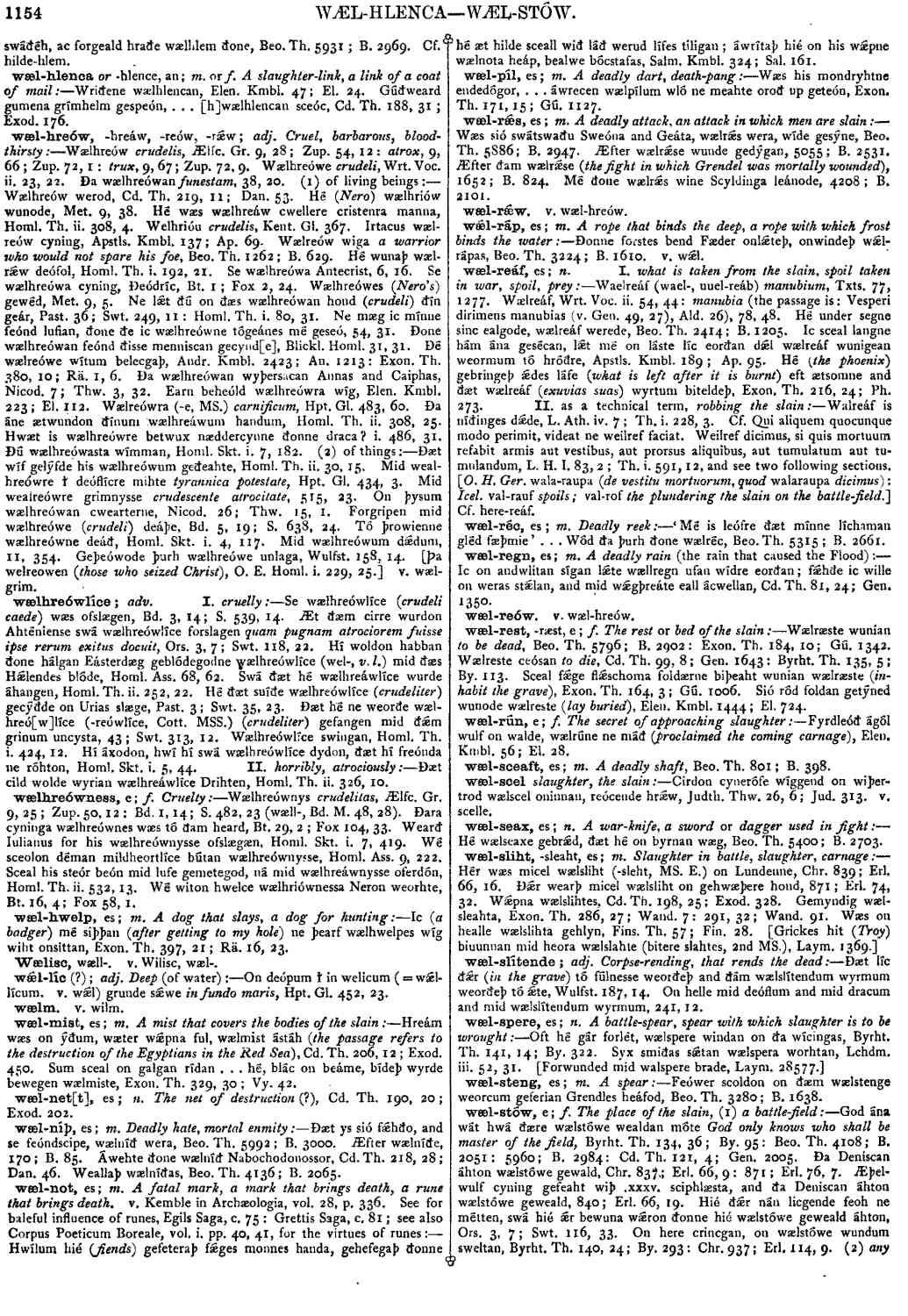wæl-reáf
- noun [ neuter ]
-
Waelreáf (wael-, uuel-reáb)
manubium,
- Txts. 77, 1277.
-
Wælreáf, Wrt. Voc. ii. 54, 44:
manubia
(the passage is: Vesperi dirimens manubias (v.- Gen. 49, 27), Ald. 26), 78, 48.
-
Hé under segne sinc ealgode, wælreáf werede,
- Beo. Th. 2414; B. 1205.
- Ic sceal langne hám ána gesécan, lǽt mé on láste líc eorðan dǽl wælreáf wunigean weormum tó hróðre. Apstls. Kmbl. 189; Ap. 95.
-
Hé (
the phoenix) gebringeþ ǽdes láfe (what is left after it is burnt) eft ætsomne and ðæt wælreáf (exuvias suas )
wyrtum biteldeþ,- Exon. Th. 216, 24; Ph. 273.
-
Walreáf is níðinges dǽde,
- L. Ath. iv. 7; Th. i. 228, 3.
-
Cf. Qui aliquem quocunque modo perimit, videat ne weilref faciat. Weilref dicimus, si quis mortuum refabit armis aut vestibus, aut prorsus aliquibus, aut tumulatum aut tumulandum,
- L.H.I. 83, 2; Th. i. 591, 12, and see two following sections. [O.H. Ger. wala-raupa (de vestitu mortuorum, quod walaraupa dicimus): Icel. val-rauf spoils; val-rof the plundering the slain on the battle-field.
Bosworth, Joseph. “wæl-reáf.” In An Anglo-Saxon Dictionary Online, edited by Thomas Northcote Toller, Christ Sean, and Ondřej Tichy. Prague: Faculty of Arts, Charles University, 2014. https://bosworthtoller.com/34347.
Checked: 0